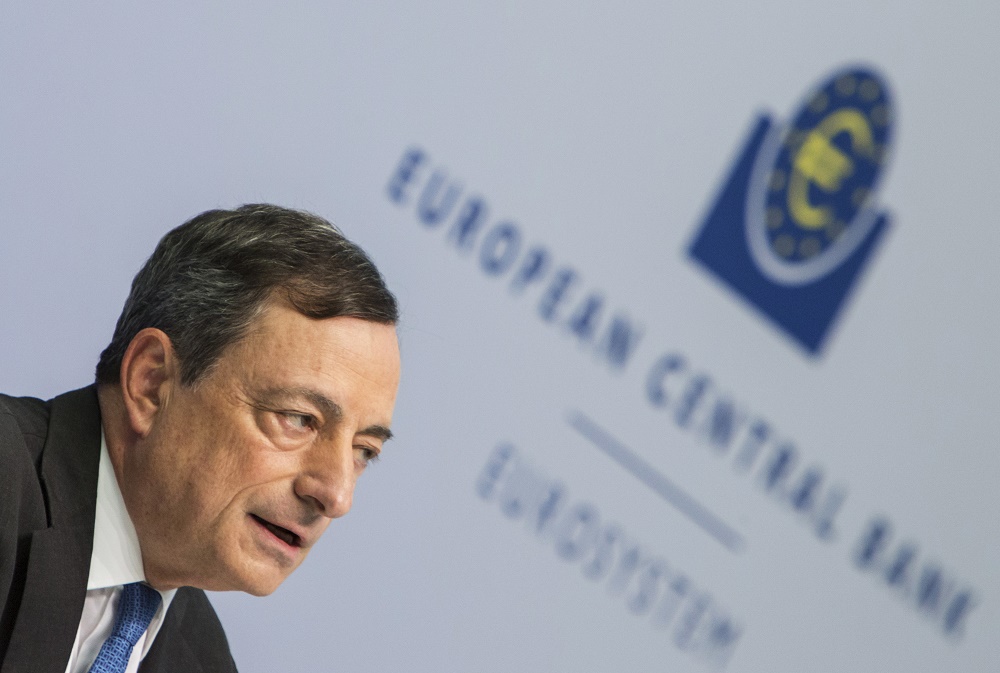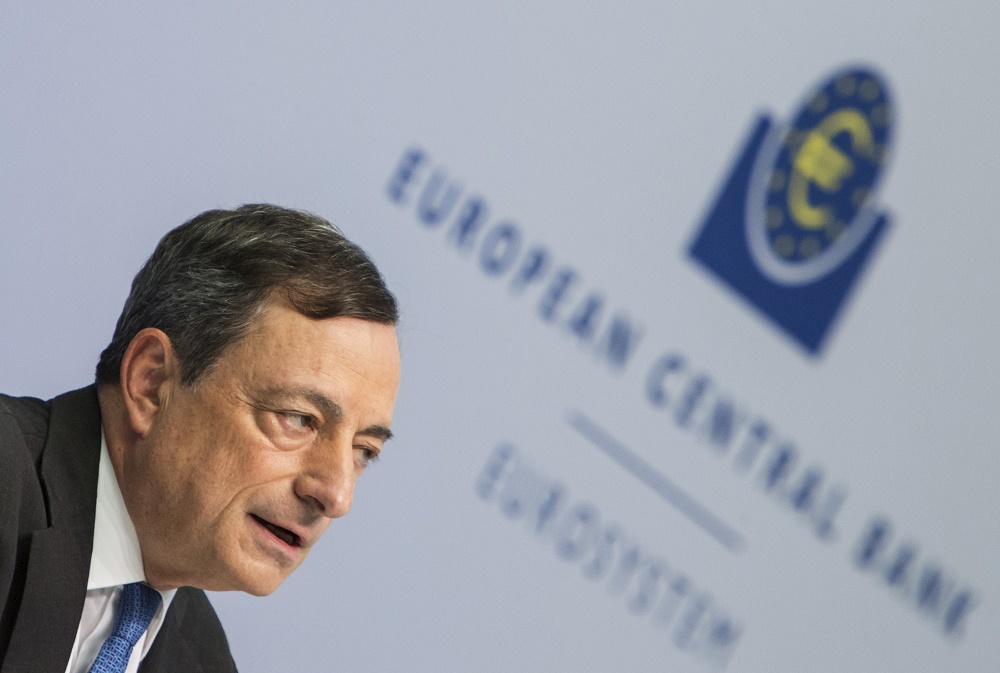ECB review of Greek banks under way, could be done end-October


European Central Bank President Mario Draghi told euro-area finance ministers that a review of Greek banks is under way, according to Jeroen Dijsselbloem, the Dutch representative and leader of the group.
As a result, the bank review is on track to finish up by the end of October and, if needed, banks could access some recapitalization funds from Greece’s bailout relatively quickly, said European Stability Mechanism chief Klaus Regling. He and Dijsselbloem spoke to reporters after the finance ministers met in Luxembourg.
“This is a complex exercise,” Regling said of the review, which includes a balance sheet assessment and stress test for Greece’s four systemically important banks.
The euro area’s single supervisor, the ECB, will tell the ESM how much is needed from the public funds. The bailout deal includes as much as 25 billion euros ($28 billion) for bank aid, which could be mitigated by private investors, Regling said.
“I’ve no clue at the moment on what will be the result of that, what is the capital need for these four Greek banks,” Regling said.
Greece received an 86 billion-euro bailout package, its third since 2010, in August after months of difficult, all-night deliberations that threatened the nation’s membership in the common currency. The tension wreaked havoc on Greece’s financial system, as the country imposed capital controls and questions rose over the fate of its four biggest lenders, National Bank of Greece SA, Piraeus Bank SA, Eurobank Ergasias SA and Alpha Bank AE.
Euro-area approval
When the euro area agreed to the bailout deal, it required the bank review to be completed this year and also said that senior bank bondholders should not be shielded from losses if banks are recapitalized. Current EU rules require junior bank creditors to absorb losses if banks receive state aid, and new rules that take effect Jan. 1 will extend to senior creditors.
The new bailout arrangement includes two aid installments earmarked for bank recapitalization. None of the money can be released without a recommendation from ECB supervisors and ESM approval.
An initial 10 billion euros has already been set into a segregated account at the ESM. To tap that money after a central bank request, the euro-area finance ministry deputies who serve as the firewall’s directors must approve a disbursement. In some cases, those directors might be required to consult their parliaments or legislative committees.
Once the ECB’s supervisory arm seeks that aid, it “could be released quickly,” Regling said. In addition to euro-area approval, release of the funds also requires permission from the European Commission’s competition division, which reviews infusions of public money into private firms.
Capital controls
A 15 billion-euro portion of the bailout package must be used by mid-November and is tied to the first overall review of Greece’s aid program.
Regling said this second installment faces more conditions for its release. “There is an understanding that this might be made available then. But it’s not available yet.”
ECB Executive Board member Benoit Coeure said at the press conference that completing the bank review is of urgent importance. He said it will be crucial that Greece can tap bank funds in November if needed, and that it’s up to the Greek government to decide when to lift remaining capital controls.
[Bloomberg]





